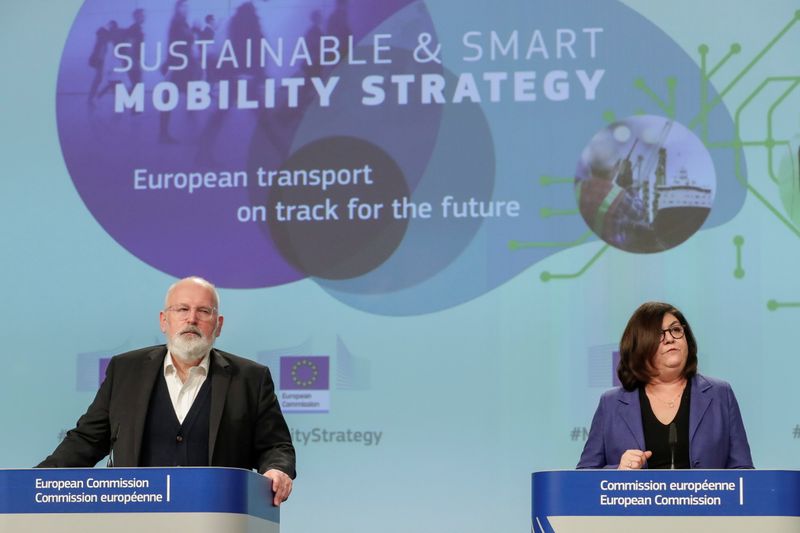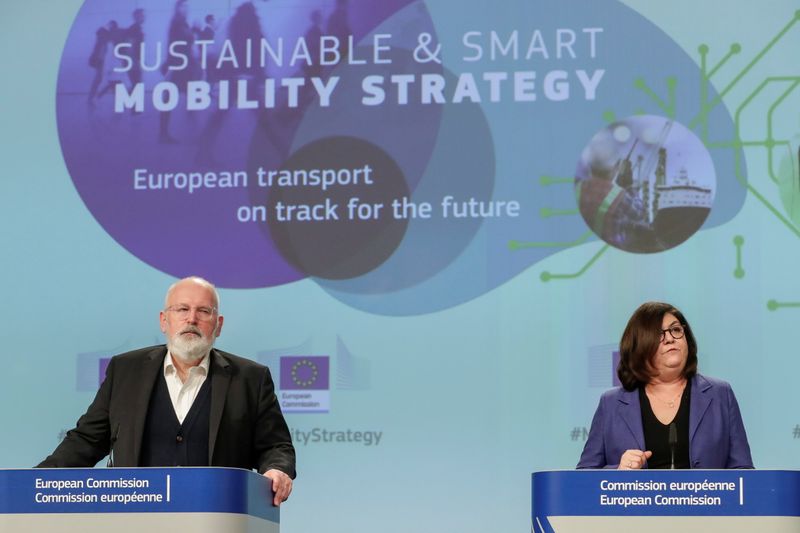By Kate Abnett and Laurence Frost
BRUSSELS/PARIS (Reuters) - The European Commission is drawing up targets for airlines to use a minimum share of sustainable fuels, it said on Wednesday, after dropping a draft 5% goal for 2030 that it deemed too low.
The pledge came as the EU executive outlined measures to tackle transport's climate impact, including a goal previously reported by Reuters to have 30 million zero-emission vehicles on Europe's roads by 2030.
A late draft had included the 5% share of "renewable and low-carbon transport fuels" to be achieved by airlines in 2030, rising to above 60% in 2050. Both targets were cut from the final published version.
EU climate policy chief Frans Timmermans said the Commission now intended to set goals at a higher level for sustainable aviation fuel use.
"We will come out with an ambitious proposal later, because we thought we could do better than what was written in the initial draft," Timmermans said.
Sustainable aviation fuels (SAF), such as liquid advanced biofuels or those produced by renewable electricity, currently account for less than 1% of Europe's jet fuel consumption.
Their uptake has been stunted by high costs and a lack of demand among airlines, which have traditionally opposed mandated quotas. Amid increasing public scrutiny of its environmental impact, however, the industry's position is evolving.
"The EU proposal for a SAF mandate could, under certain conditions, be a positive development in providing a degree of certainty to the market and driving production," said Michael Gill, head of ATAG, a global aviation sector lobby group.
Those conditions include policy support for SAF development and avoiding anti-competitive effects, Gill said.
Finland, France, the Netherlands, Spain and Sweden are among the EU states already considering their own binding targets.
Campaigners on Wednesday urged the EU to promote hydrogen produced from renewable energy over biofuels, which they said have in the past contributed to deforestation.
"Biofuels are not the solution," said William Todts, executive director of NGO Transport & Environment.
Some $108 billion in aviation aid during the coronavirus pandemic could have been used to boost production of green fuels, but the opportunity was largely missed, the International Energy Agency said in a report last month.

The Commission also said zero-emission large aircraft should be market-ready by 2035 - a deadline Airbus has set itself to put a carbon-free plane into service.
